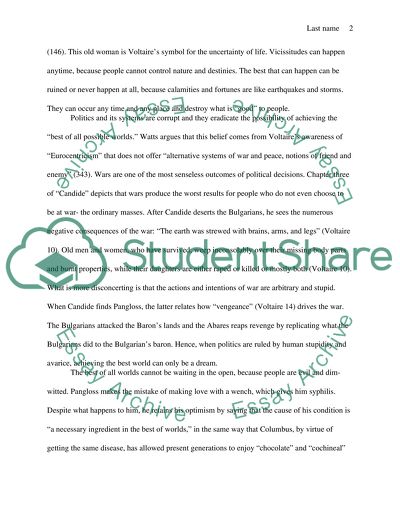Cite this document
(“Optimism Like A Farce In Candide Research Paper”, n.d.)
Retrieved de https://studentshare.org/literature/1391225-candide
Retrieved de https://studentshare.org/literature/1391225-candide
(Optimism Like A Farce In Candide Research Paper)
https://studentshare.org/literature/1391225-candide.
https://studentshare.org/literature/1391225-candide.
“Optimism Like A Farce In Candide Research Paper”, n.d. https://studentshare.org/literature/1391225-candide.


